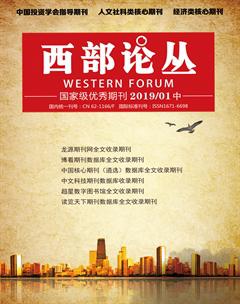Future trends in Accounting Profession
One of the most important motivators for harmonizing accounting standards is to reduce the compliance costs for companies listed on stock exchanges in different countries, and at the same time to encourage more cross listings on multiple stock exchanges. Moreover, high quality international accounting standards would improve investor confidence, enhance market liquidity, and may ultimately reduce the cost of capital. Global accounting standards are hence rapidly converging.
At this moment, market regulators around the world are considering which standards to use for cross-border listings on stock exchanges (Martin & Udo, 1996; Pownall & Schipper, 1999; Dye & Sunder, 2001; Cheney, 2002; Campbell, 2002; Chawla, 2003; Cornik-Tomaszewski & McCarthy, 2003; Garcia, 2003). For years, U. S. Generally Accepted Accounting Principles (hereafter, GAAP) proponents steadily rejected proposals for shifting to international accounting standards (hereafter, IAS), but corporate scandals in the U.S. have largely undermined their long-standing argument that GAAP is invariably superior to IAS. In face of the recent financial reporting crisis in the U.S. Financial Accounting Standard Board (hereafter, FASB) has realized that it does not have all the answers to all accounting issues. There are some areas of U.S. standards that could be improved, generally where international standards seem to be more principles-based and more easily applied (Pacter, 1998; Staff, 2002; Cheney, 2002; Gallardo, 2003; Cornik-Tomaszewski & McCarthy, 2003).
To achieve its current goal of convergence, the International Accounting Standards Board (hereafter, IASB) works closely with national standard setters around the world. The FASB is one of the LASB's most important partners. Therefore, the issue before us is no longer whether we should have a set of high-quality international standards, but when and how this might be achieved. Even though significant national differences exist in the form of economic, political, cultural and social factors, a very strong drive for harmonization will continue. By understanding where we are in approaching harmonization, the answer to the questions of when and how the goal can be achieved would be more desirable (Cornik-Tomaszewski The accounting profession will face significant changes in the next three decades, and professional organizations, their members, and educational institutions should respond. The three changes—evolving smart and digital technology, continued globalization of reporting/disclosure standards, and new forms of regulation—are also major challenges for the profession.
Accountants will use increasingly sophisticated and smart technologies to enhance their traditional ways of working, and these technologies might even replace the traditional approach (see “The End of the Accounting Profession as We Know It?”). Smart software systems (including cloud computing) will support the trend toward outsourcing services (including more overseas outsourcing), and greater use of social media via smart technology will improve collaboration, disclosure, engagement with stakeholders and broader communities (see ACCA research, above). Social media (including Facebook, Twitter, and Google search) will reveal more data (including alternative reporting, see BHP Billiton Annual Report 2012) than any corporate assurance report and stakeholders will use tools to interpret “big data” (see ACCAs Big Data: Its Power and Perils).
Additionally, social and environmental considerations are getting importance alongside economic concerns in contemporary organizations. We see a range of stakeholder groups including shareholders, workers, governments or regulators, non-governmental organizations, media, and the community have a growing interest in organizational social and environmental issues. Because of the widespread stakeholder concern and associated regulations toward social and environmental considerations, contemporary organizations are facing challenges to find sustainable solutions to deal with the complexity of integrating financial, social, and environmental performance. Quite tied to this, new forms of regulation (such as integrated reporting
作者簡介:刘乔威(1994.02—),女,籍贯:北京市通州区,学历:研究生,在读:法国ISTEC PARIS巴黎高等商业学院,研究方向:mba.

